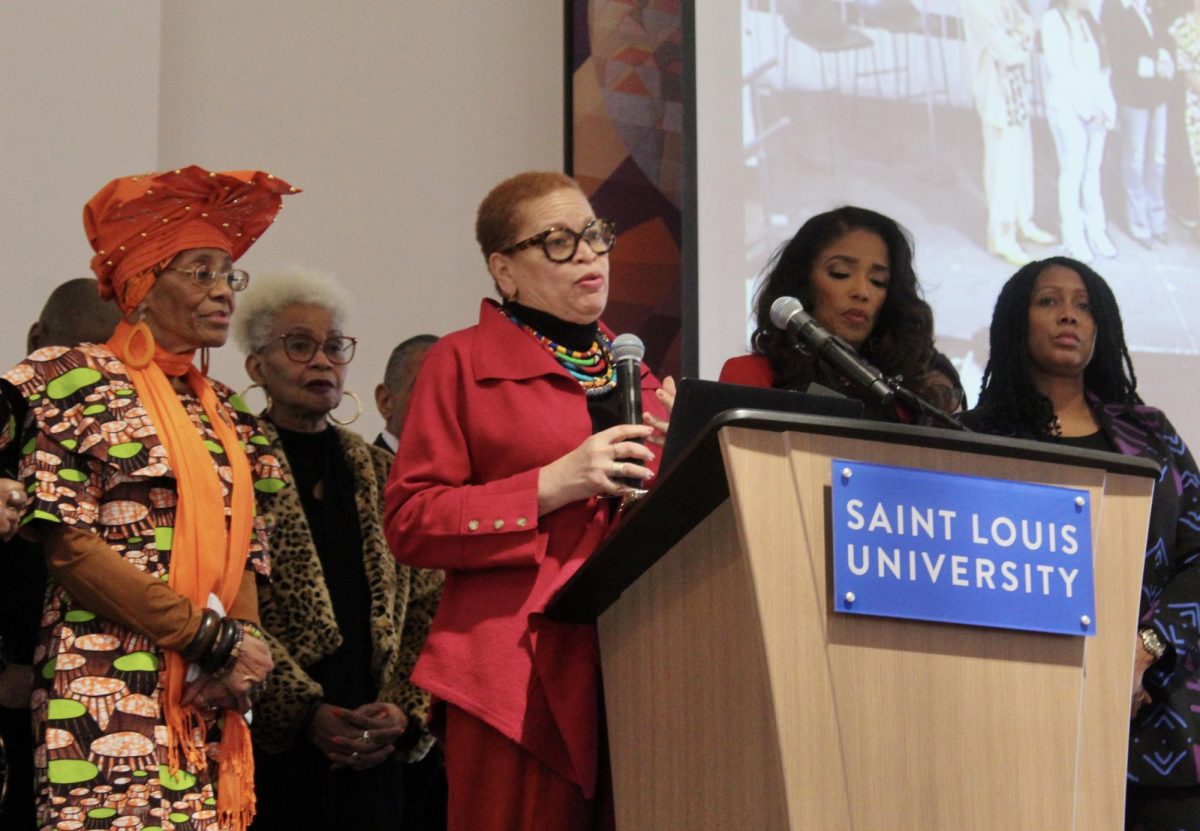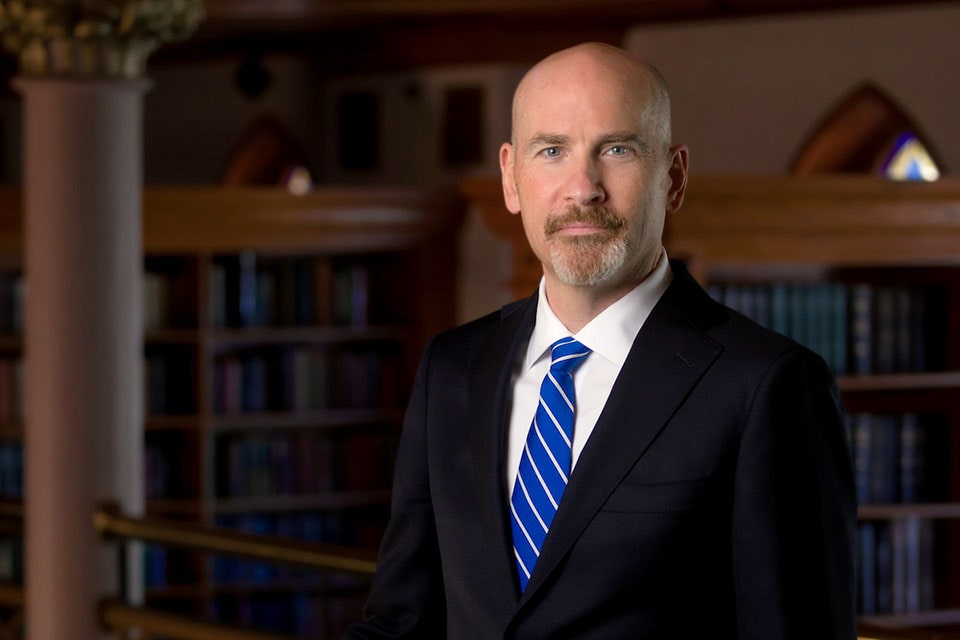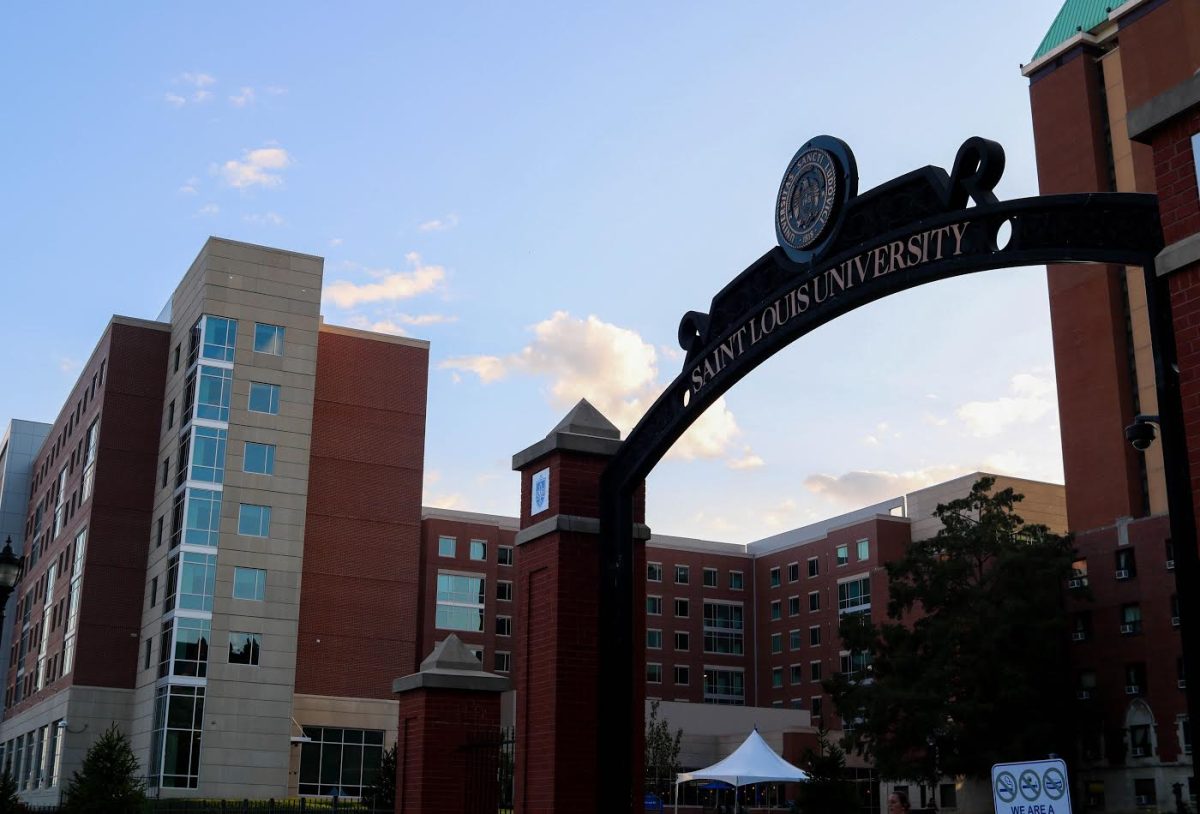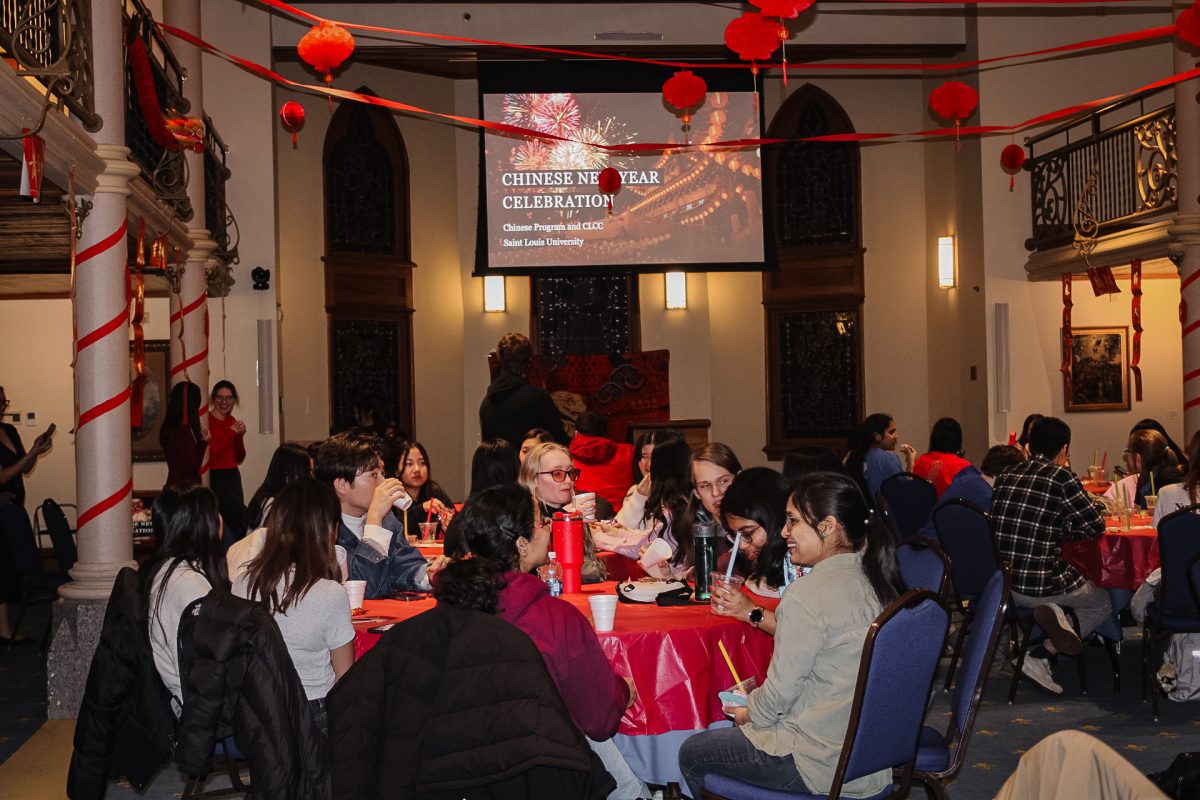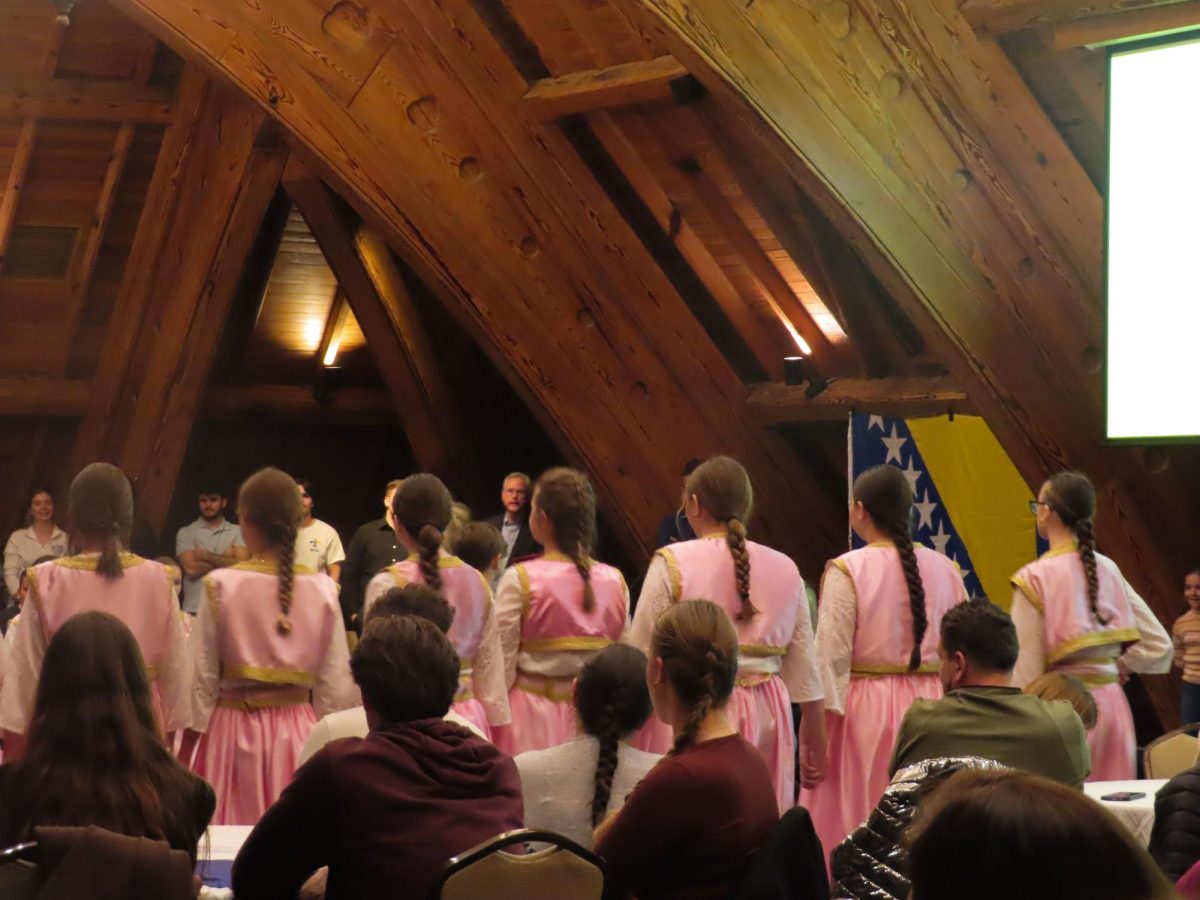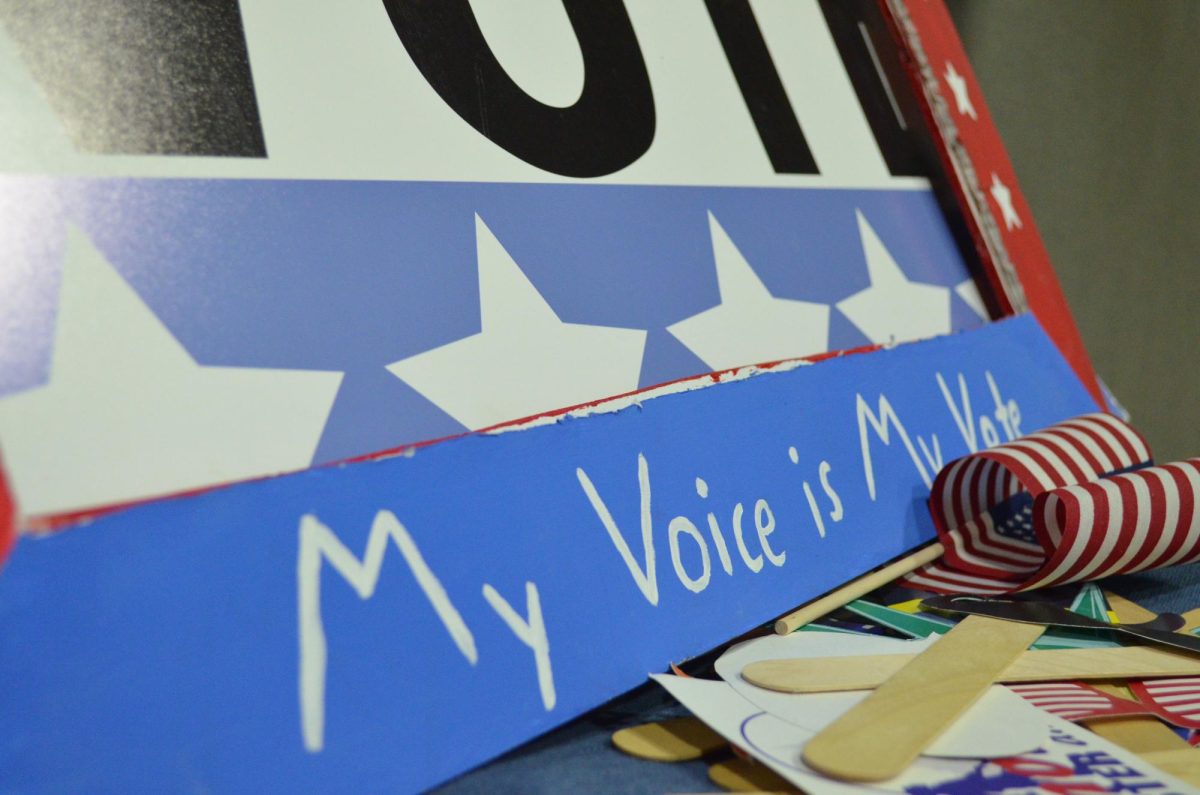The descendants of enslaved people who helped build Saint Louis University argue the institution owes them upwards of $74 billion in restitution for their ancestors’ stolen labor and wealth.
At a briefing on Feb. 8, Descendants of the St. Louis University Enslaved (DSLUE) said the university has not taken any meaningful action to honor the legacy of their ancestors following the Slavery, History, Memory and Reconciliation Project.
The research project traced the history of people enslaved by 19th-century Jesuits who helped build and sustain SLU and other Jesuit missions. In 2019, researchers sent letters to nearly 200 people believed to be descendants, including Robin Proudie, who has since spent years advocating for her ancestors’ commemoration.
“Our ancestors’ blood, sweat and tears are all through this space and through the wind. When I walk around [SLU] I feel them,” Proudie said. “Those who benefitted from the labor of our ancestors are still benefiting today.”
Proudie is a descendant of Charles F. Chauvin and his wife Henrietta Mills, who was born into slavery at SLU around 1844. She launched DSLUE alongside her family members to preserve their ancestor’s history and repair historical harm.
Now the descendants want the university to take action. The group’s lawyer, Areva Martin, said naming a monetary value of unpaid labor is crucial to the reconciliation and healing process.
Economics and reparation experts who worked with the group estimate the value of stolen wages to be between $361 million to $74 billion. The figure does not account for emotional suffering and loss of freedom, Martin said.
The estimates are calculated based on hourly wages of five cents from 1823, when enslaved people were brought to St. Louis until 1865, when Missouri became a free state. The range of $361 million was calculated on a 3% compound interest rate, while the $74 billion was calculated on a 6% rate.
“The facts are indisputable,” Martin said. “We know from the Jesuits themselves that these universities unjustly enriched themselves and accumulated billions and billions of dollars at the expense of enslaved people, and Saint Louis University is amongst the offenders.”
She added that the SHMR project is commendable, but the university’s efforts have fallen short by not enlisting economics experts or consistently engaging with descendants.
“Failing to account for the value of theft is yet another form of erasure of the harm,” Martin said.
DSLUE is not alone in advocating for reparations from educational institutions. Georgetown University, also a Jesuit school, started a Reconciliation Fund in 2022 awarding $400,000 annually to community-based projects that can impact descendants of people enslaved by Jesuits in Maryland. This came after student protests pressured alumni to weigh in and compel the administration to action.
Other major universities that have engaged in the slave trade, like Harvard, Wake Forest, Baylor, Yale, Brown and Columbia have publicly recognized their role in its history, but continue to debate what reconciliation looks like.
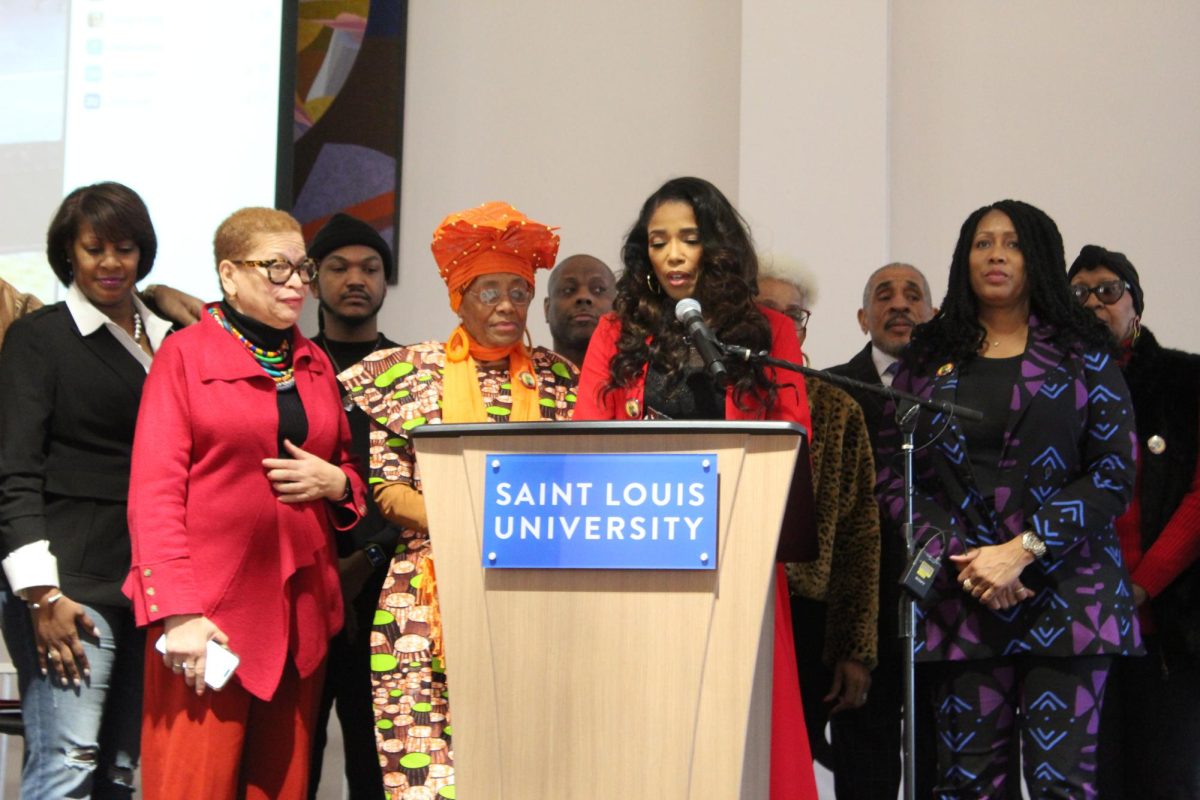
Historical erasure at stake
DoMarco Holley, who is also a descendant, said this renewed effort to pressure SLU to honor his ancestors is important to avoid historical erasure.
“As a descendent, I just really want recognition,” Holley said. “Yes, compensation is really good and of course I will take it if it’s offered, but it’s more about knowing that my ancestors left a mark here and it’s not just erased.”
The Jesuits’ involvement with the system of slavery should also be better incorporated into the university’s curriculum, Holley added.
For professors like African American department chair Christopher Tinson, teaching this history and supporting the descendants’ reparative efforts is an “obligation,” he said.
“We have to really embrace that term’ reparations.’ Repair is the answer,” Tinson said. “This is a time of bold action and courageousness that we need to demonstrate. We can’t keep quiet about things that are uncomfortable, that make people uncomfortable.”
Few students were in attendance at the event, about a dozen came as part of Tinson’s class. Many, like sophomore Arya Ramadas, say they didn’t know about SLU and the Jesuits’ role in enslavement prior to the DSLUE event.
University spokesperson Clayton Berry said SLU hopes to establish relationships with descendant families, but did not offer specifics about the group’s monetary estimation.
“We acknowledge that progress on our efforts to reconcile with this shameful history has been slow, and we regret the hurt and frustration this has caused,” Berry wrote in a statement.
According to a 2019 statement by president Fred Pestello, the university will provide updates on the progress of reaching individuals believed to be descendants, though he has not made any public comments since. Pestello was not in attendance at the DSLUE event.
As descendant Safiyah Chauvin spoke to the crowd, she said she was hopeful her family’s quest for justice will be realized.
“We can be a beacon of light,” she said.




